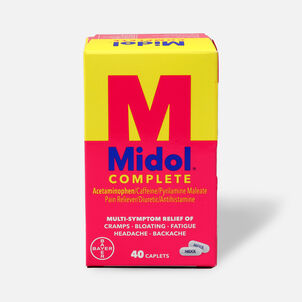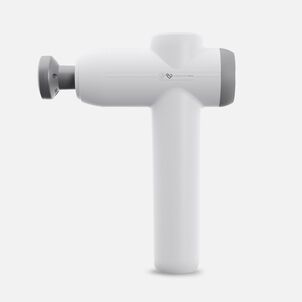Here's a question: Would you invest in a classic car and restore it just to drop the kids off at school? Probably not. With the money and time you put in, you're going to want to really take advantage of everything said car has to offer. Whether that's the joy of slowly fixing it up into a future road warrior to seeing exactly how fast that baby can go down a track. Health savings account (HSA) is kind of like that classic car.
HSA is great because it can be invested like a standard retirement account, to grow your savings over time. The more love you put in, the better it gets for the future. And with healthcare costs rising well ahead of the pace, every investment advantage can help — especially one with a killer tax advantage. So, why do so many HSA owners choose to limit themselves and the potential their money could offer by not maximizing these savings through sound investment strategies? Let's take a quick look at how your HSA can become a nest egg like no other.
The 101-level stuff
HSAs are accounts that allow people with qualified high-deductible health plans (HDHPs) to save for future medical expenses.
Contributions are made tax-free, up to the annual limit, and funds can be used tax-free for qualified medical expenses. For 2024, you can contribute $4,150 for individual participation, and $8,300 for two-person or family. Plus, if you're 55 or older, you can make additional "catch-up" contributions up to $1,000 each year to help boost your savings.
Even better? If you have an HSA, you get a triple tax benefit.
- You get interest earned on the money you contribute
- You have no tax on those contributions
- You can pay for qualifying health expenses, tax-free
After you turn 65, this money can be used for anything you want though it'll still be taxed at the normal income tax rate. And no matter where you work or hold your account, the money goes with you, every step of the way. It's yours to use.
Bottom line? Even if you don't invest, there's money to be made, just by making sure you max out your contributions. But if you do… Well, we'll get to that in a bit.
Benefits of investing HSA funds
This is why you're here, right? Because HSA funds have been earmarked for healthcare use, people often forget that investing can be a straightforward way to turn solid HSA balances into something really substantial for retirement. And, if you have no plans to use this money for a while, investing might be the best way for you to maximize this account.
Strategy basics
If you've already invested money before, your HSA investment strategy should be the same (or at least similar) to any of your other retirement accounts. Meaning, any HSA investments should support your larger portfolio diversification plan, while also staying within the level of risk you're most comfortable with. And if you haven't invested before, no worries — it's the same strategy: Starting out strong while you're young and healthy, then investing more conservatively over time.
The reason is pretty simple — if you're younger and healthier, and less likely to need funds for health care needs, you probably have more freedom to be a little assertive with your investment strategy, to try and make some early gains.
As you grow older, and more health care needs begin to pop up, it might make more sense to slow things down, making more measured investment maneuvers, and allocating more money for health essentials, for those inevitable "just in case" moments.
If you have an HSA through your employer, you might have some easy investment options at your disposal. But whenever possible, you should find investments that best match your existing strategy. More importantly, we need to revisit the idea of risk, and how comfortable you are investing your money this way. While it's great that HSA are flexible enough to allow for exponential growth, you still need to be careful.
A cautious example
Let's say you decide to take a large chunk of your health savings and invest it in a mutual fund — which has a range of stocks, bonds and other investment opportunities. They offer a great chance to grow, but can also be really volatile, and often lose value.
If you're young, healthy and wealthy, this may not be a huge problem. But if you suddenly need these funds for emergency medical expenses, it might be rough to think of money you lost, when it's more money you need. As always, this should not be considered legal or tax advice in any way. Always speak with a trained financial professional before making any investment.
Basic HSA investment options
Your bank or credit union might offer an investment option, but you may find that a different financial institution might have better offerings. There are a lot of HSA administrators that allow you to invest the money in your HSA, each with its own set of fees and options.
Most larger institutions give you the option to invest in stocks, bonds, mutual funds or other common investment possibilities. But the IRS is pretty flexible when it comes to investment rules, so don't be surprised if your administrator also lets HSA funds be used for real estate, mortgages, exchange-traded funds, and even business investments.
There are a huge range of options, which your HSA administrator can explain in detail. But the IRS is pretty open minded, as long as you're not trying to use health savings funds to invest in art, collectibles, jewelry, vintage cars or other tangible items, per the tax code. (Apologies to the dedicated stamp collectors out there — you'll have to use other funds for those rarities.
Some valuable HSA investment resources
As always, we recommend speaking with a licensed financial advisor before making any investment decisions with your HSA. But to give you a head start on that discussion (and a better picture of what your investment potential could look like) check out some of these tools from our trusted partners.
- HSA & 401(k) Maximizer: How does your 401(k) stack up against an HSA? Calculate how much you may want to consider contributing to both and make the most of an HSA on your journey to retirement.
- HSA Tax Savings Calculator: Estimate how much you can save with an HSA's triple tax benefits.
Are you ready?
It's pretty obvious that there are some risks involved with any investment, but there's no denying the benefits that can come from making a few shrewd moves with your tax-free funds. And making these moves when you're young and healthy can help you stay young and healthy if your medical needs grow as you get older.
Just like buying and building up a car is overkill for soccer practice runs, not taking full advantage of your HSA's possibilities can limit the benefits of your savings. Talk with your HSA administrator to see what investment options make the most sense for your future.
As always, the information provided in this article should not be considered legal or tax advice. Please consult a licensed professional for appropriate advice given your individual situation.
-
Thank you for visiting the HSA Store Learning Center. Don’t forget to follow us for more helpful tips on Facebook, Instagram, and Twitter.

.png)
















